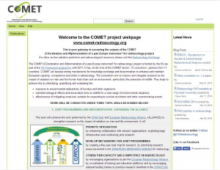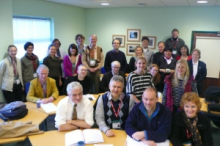Knowledge Exchange
The overarching objective of this work package was to enhance and maintain European capacity and skills in radioecology by establishing a dynamic interaction promoting effective collaboration between researchers, tool developers, regulators and industry.
This will ensure more effective ‘take-up’ of scientific advances by the user community and ensure that radioecological research is better focused to address the needs of users. Key to this will be effective links to other networks, projects and platforms (e.g. STAR, OPERRA, ALLIANCE, MELODI, NERIS, CINCH-II). This work package also ensured that the Radioecology Exchange is maintained after the conclusion of the STAR project (September 2015) so that valuable resources such as the PhD Research School, education and training course modules, the data catalogue and the virtual laboratory, are further developed.
The three specific objectives of this work package were:
ESTABLISH THIS WEBSITE WHICH | |
 | Is an essential component of our communication strategy Provides informed and regular updates of project developments Provides access to the Radioecology Exchange |
| DEBATE TOPICAL RADIATION PROTECTION ISSUES BY: | |
 | Facilitating discussion Running four focused workshops Maintaining an open dialogue |
| MAINTAIN AND ENHANCE COMPETENCE BY: |
Securing long-term availability of knowledge associated with Observatory sites Focusing on the training needs of the user community Developing a time efficient mechanism of delivering training Considering how to best interact with other on-going training activities Considering how best to interact with other organisations Exploring implementing the European Credit System for Vocational Education and Training (ECVET) Conducting field study courses |
For more information on the work to be conducted contact Catherine Barnett

